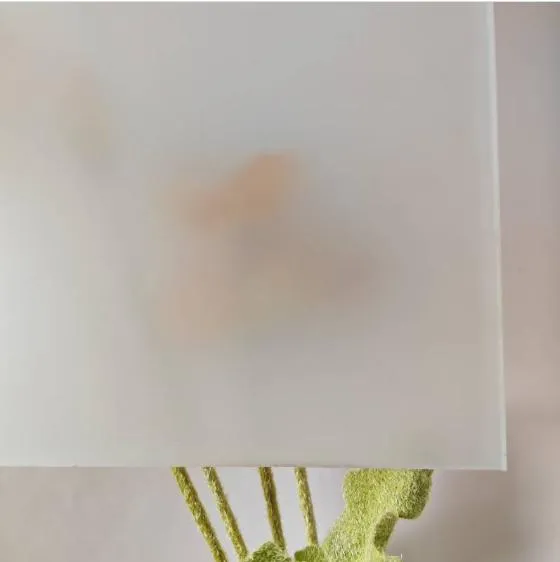Decorative glass, with its myriad designs and types, plays a pivotal role in both residential and commercial spaces. It not only enhances aesthetic appeal but also offers functional benefits such as privacy, light diffusion, and insulation. Understanding the different types of decorative glass can assist buyers in selecting the perfect fit for their specific needs. Let's delve into some popular decorative glass types and explore their uses and benefits.

Stained glass is an iconic decorative glass type that has been used for centuries in religious and historic buildings. Its vibrant colors and intricate patterns are achieved by adding metallic salts during its manufacture. Today, it's not only favored for traditional settings but also for modern applications, offering a splash of color and artistry. Stained glass windows can transform any space by casting beautiful light patterns and creating a serene ambiance.
Frosted glass is another commonly used type, achieved by sandblasting or acid etching clear glass to create a translucent, matte finish. This type of glass is especially popular in bathrooms, office partitions, and doors where privacy is crucial without sacrificing natural light. Frosted glass can be customized with patterns or logos, making it a versatile option for various settings. Moreover, it is easy to clean and maintains its aesthetic appeal over time.

Etched glass, similar to frosted glass, is crafted by using etching tools or acids to create designs on its surface. Unlike frosted glass, etched patterns can be more elaborate, featuring detailed designs and intricate motifs. It's an excellent choice for decorative panels, mirrors, and dividers. This type of decorative glass gives a sophisticated touch to interiors and is often used in high-end residential spaces and luxury hotels.
Textured glass brings a three-dimensional element to any environment. Its surface features distinct patterns, such as ripples, waves, or geometric shapes, which distort visibility while allowing light to pass through. Textured glass is ideal for cabinet doors, shower enclosures, and windows where privacy combined with style is desired. The variety of textures available can complement any decor style, from traditional to contemporary.
decorative glass types
Colored glass, available in a spectrum of hues, adds vibrancy and dynamism to architectural designs. It's often used in feature walls, façades, and decorative items. Colored glass can also offer functional benefits, such as reducing glare or filtering sunlight, contributing to energy efficiency. The versatility in color choice allows designers and architects to create unique visual statements that align with the aesthetic goals of a project.
Beveled glass is characterized by its angled edges, which create a prism effect that reflects light into a spectrum of colors. It's commonly used in windows, doors, and mirrors to add a classic and refined look. Beveled glass panels are especially popular in entryways, where they create a welcoming and polished appearance. This type of glass is a testament to skilled craftsmanship and adds value to any property.
Furthermore, artists and craftsmen often combine various types of decorative glass, such as stained and etched, to create exquisite masterpieces that serve as focal points in homes and public spaces. Custom-made glass pieces are gaining popularity, allowing for personalization and exclusivity in interior design. This bespoke approach not only meets aesthetic demands but also satisfies individual preferences and practical considerations.
In conclusion, the diverse types of decorative glass provide an array of possibilities for enhancing architectural designs. When choosing decorative glass, it's important to consider both the visual appeal and functional requirements of the space. By selecting the right type, one can achieve a harmonious balance between style and utility. Whether for privacy, light diffusion, or purely decorative purposes, decorative glass continues to be a timeless and versatile choice in the world of design. These glass types can significantly impact the ambiance and functionality of any environment, making them an indispensable element in architectural and interior design.



